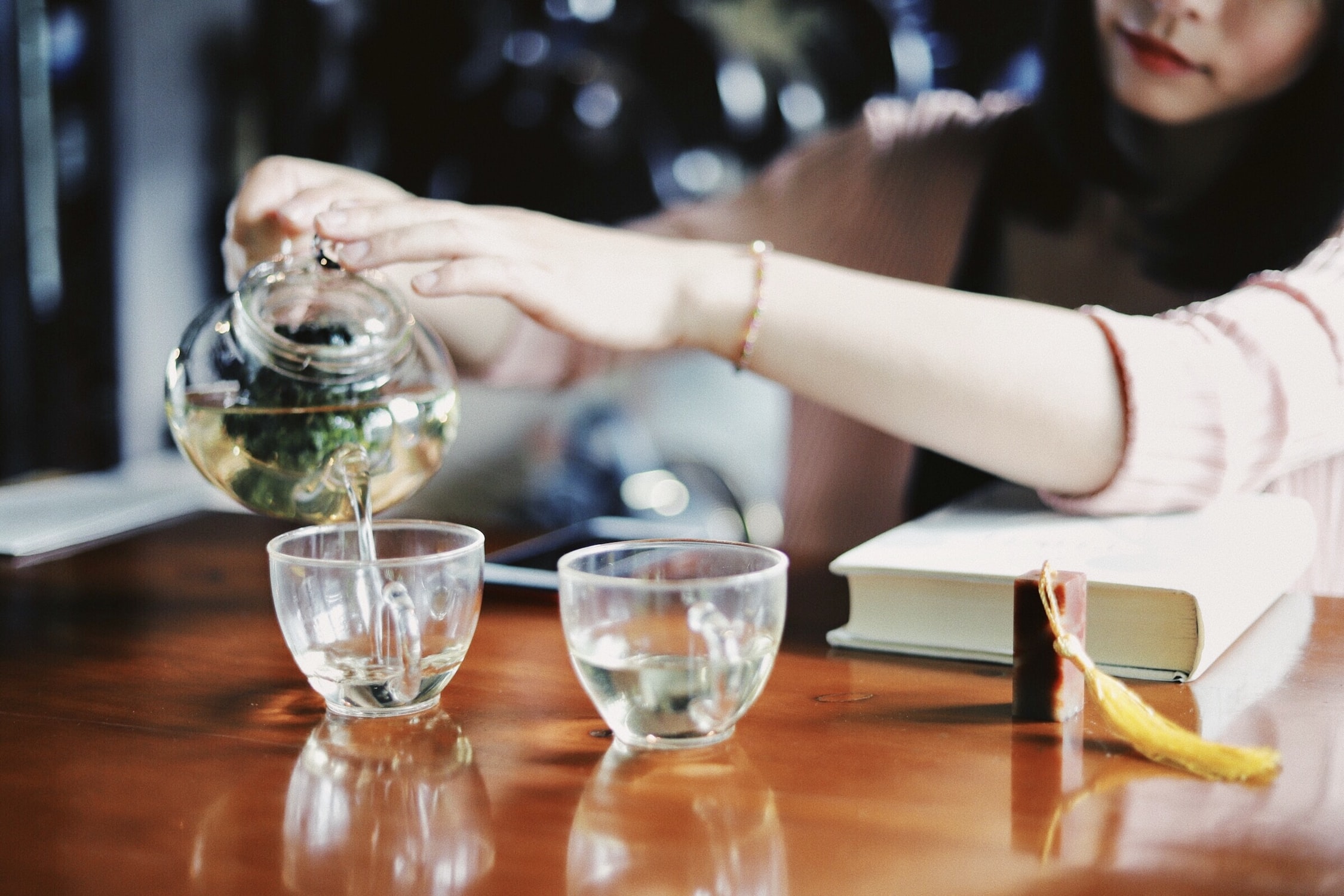Reducing inflammation in the body can produce a range of positive effects. If you suffer from inflammatory diseases such as arthritis or asthma, you may find that these improve when overall levels of inflammation are reduced. Sustained and chronic inflammation is also implicated in a range of other medical conditions, including diabetes, GI complaints, and mood disorders.
There are various ways to reduce inflammation. One way is to consume herbs, spices, and teas with anti-inflammatory properties.
Camellia sinensis
Black, green, and white teas all come from the Camellia sinensis shrub. The leaves are harvested and processed differently to produce different varieties of tea.
The good news is that your familiar black tea, the one most commonly enjoyed by tea drinkers, contains plenty of antioxidants and is an anti-inflammatory. The bad news is that you may need to swap your preferred brand of tea-bags for loose-leaf tea if you want to get the full benefit. The small extra effort is well worth it.
Less processed and with a lighter flavor, white tea is refreshing and delicious. If you’re used to strong, bitter black tea, you may find the more delicate flavor of white tea is a pleasant surprise.
Green tea is also delicious. You can buy many varieties of loose-leaf green tea, which you might enjoy with lemon or lime in place of milk for an extra antioxidant boost. If you want a wonderful anti-inflammatory treat, try matcha tea. This takes a little more work unless you buy it pre-prepared, but it’s well worth it. The powdered green tea is whipped up with water using a whisk to produce a robust and refreshing flavor. Matcha tea is noted for many health-promoting properties, including lots of antioxidants and anti-inflammatory compounds.
Tulsi (Ocimum sanctum)
This plant is native to Southeast Asia and India. Referred to in English as Holy Basil, it is a component of traditional medicine. In Ayurveda, it’s known as tulsi. This herb is regarded as an adaptogen — a herb that helps reduce stress and supports you in coping with the rough and tumble of life. Many of the compounds found in tulsi are believed to have anti-inflammatory effects, making tulsi tea a useful addition to your kitchen. While you might need to hunt a little harder for this tea than for some other herbal teas, you can often find it in specialist health food or herbalist stores.
Rooibos
This naturally caffeine-free infusion comes from South Africa. It has a pleasant, slightly tart flavor that pairs well with fruit juices or anti-inflammatory spices. Rooibos is a delicious alternative to tea if you want to reduce your caffeine intake, or if you prefer a less bitter drink. A significant advantage of rooibos is that it’s very easy to find in stores.
Spice teas
An infusion of certain spices, as well as being a warming and refreshing alternative to your usual brew, can help reduce inflammation. Two of the best spices for this are turmeric and ginger. Be a little picky when you’re shopping for ginger or turmeric teas, as these two spices tend to lose their virtue if they’re allowed to become stale.
Loose turmeric can be blended with warm milk, black pepper, and honey for a delicious drink called golden milk. If you’re avoiding dairy, this is just as nice with coconut milk or your favorite non-dairy alternative.
Instead of buying ginger teas, you may find it more useful to purchase the whole fresh root and make your own. You can infuse sliced fresh ginger root in hot water with lemon and honey for a soothing beverage that’s great for colds and upset stomachs.
Remember that drinking anti-inflammatory teas, while valuable, should not be the only measure you take to reduce inflammation. Taking regular exercise, eating a healthy, balanced diet, getting proper sleep, and giving up smoking can all help reduce inflammation and improve your overall well-being.
Tap for recommended posts on the tags you don’t follow






